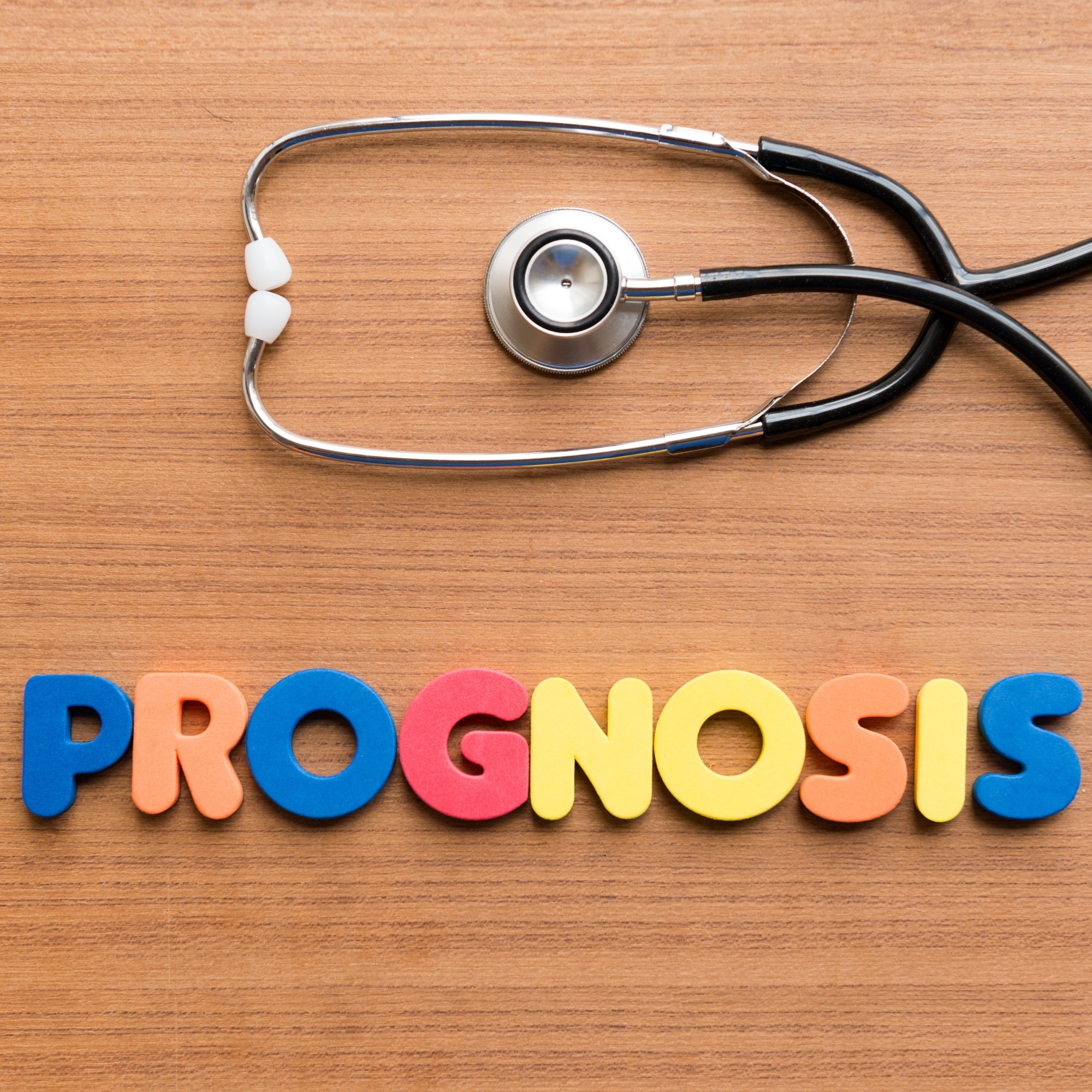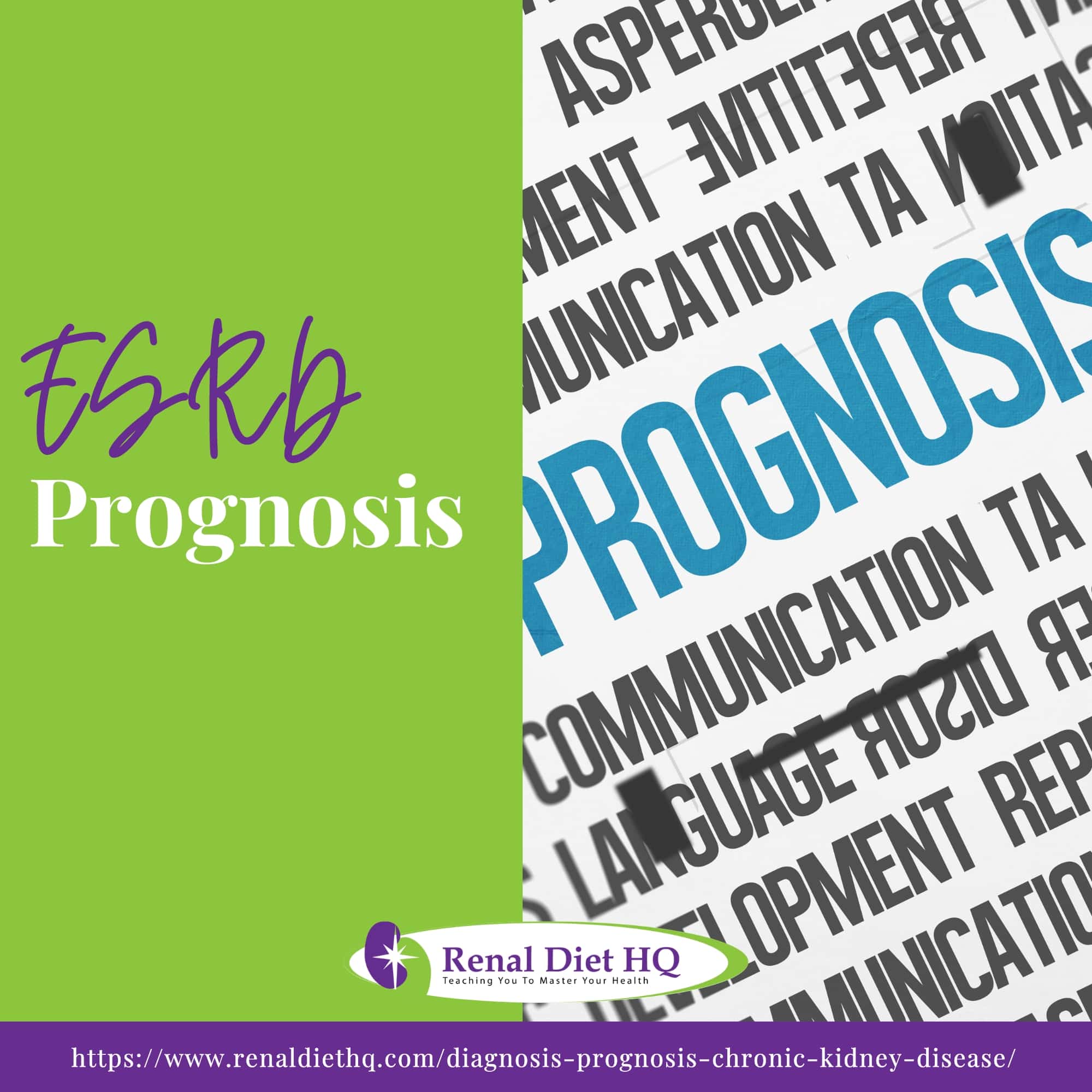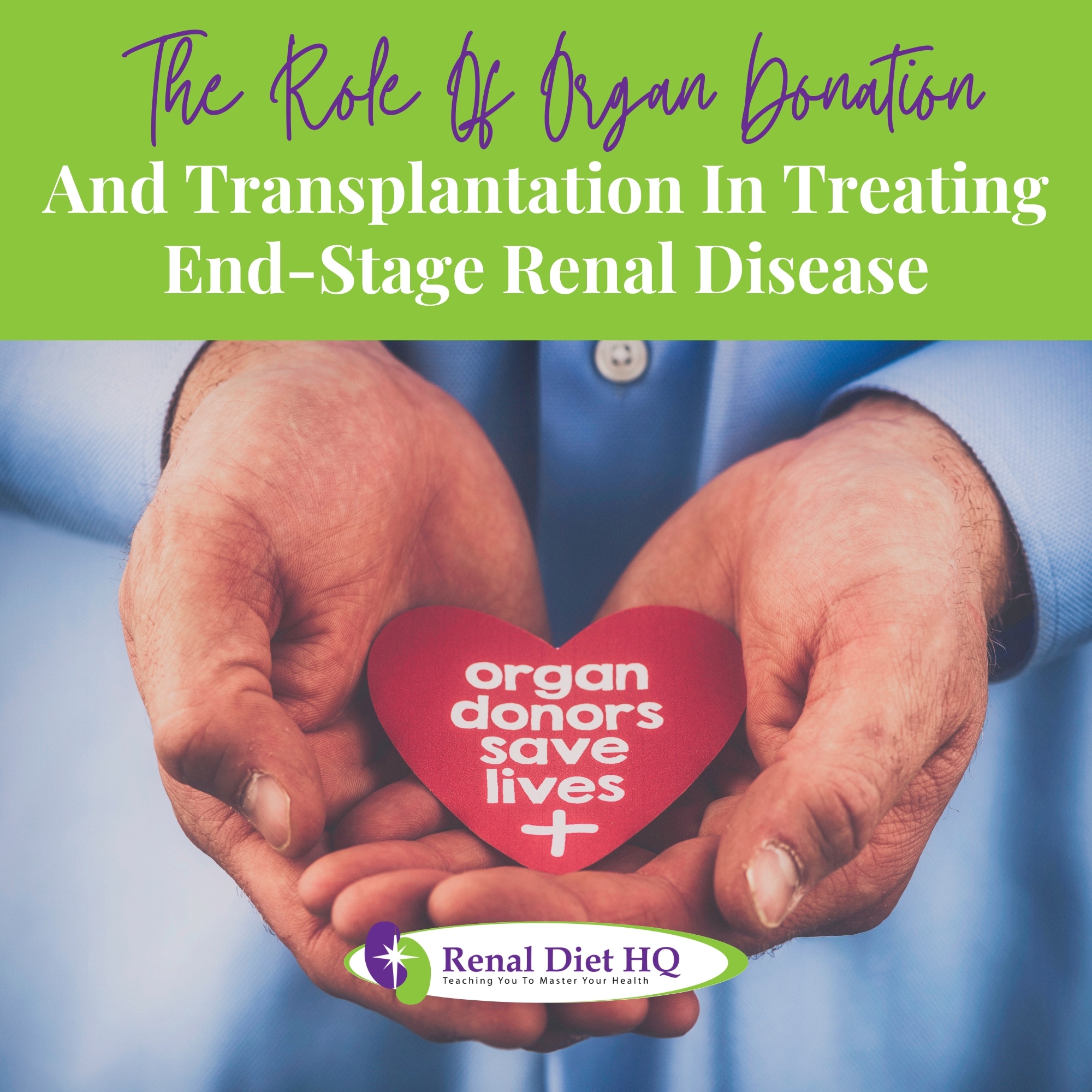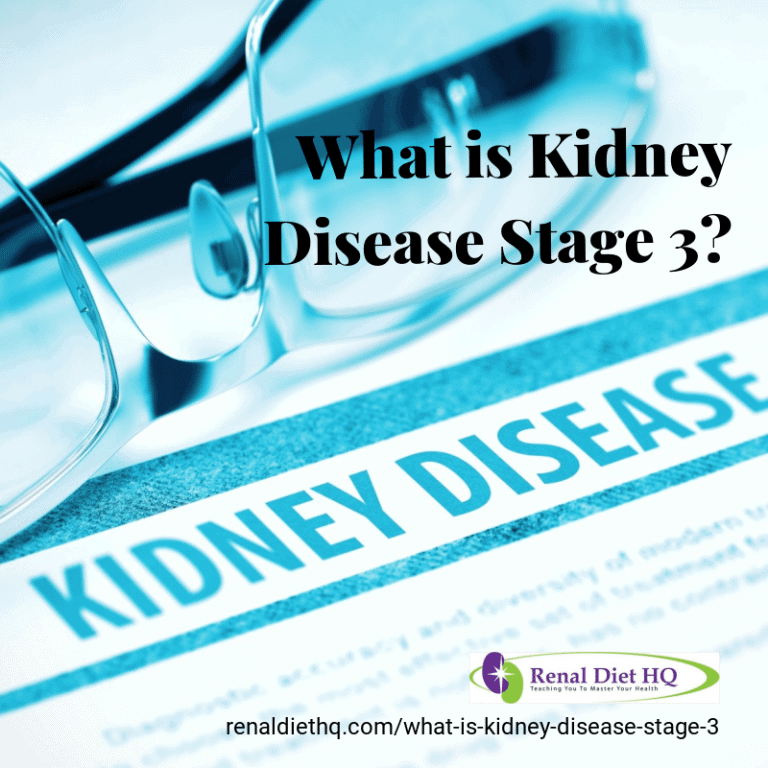ESRD Prognosis
Chronic Kidney Disease (CKD) is a silent epidemic affecting millions worldwide, with the potential to progress to End-Stage Renal Disease (ESRD), a critical stage demanding life-sustaining treatments like dialysis or kidney transplantation.
Understanding the journey from CKD diagnosis to ESRD prognosis is important. This article delves into the multifaceted aspects of CKD, examining its diagnosis, progression factors, and the impact on a patient's prognosis.
It also explores the array of treatment options available, providing invaluable insights into managing CKD, delaying progression, and optimizing the quality of life for those facing the daunting challenges that come with ESRD.

Key Takeaways
- Maintenance dialysis complications and transplant complications can impact the prognosis of ESRD.
- Factors such as age, renal diagnosis, and dialysis play a crucial role in improving the prognosis of ESRD.
- Preventative measures and risk reduction strategies can help slow down progression of CKD to ESRD.
- Organ donation and transplantation are important considerations in terms of renal replacement therapy for kidney failure patients.
Jump to:
- Key Takeaways
- Investigating the Causes and Risk Factors of End-Stage Renal Disease
- Understanding the Symptoms of End-Stage Renal Disease
- The Diagnostic Process for End-Stage Renal Disease
- Factors Affecting Disease Progression
- Treatment Options for End-Stage Renal Disease
- The Role of Organ Donation and Transplantation in Treating End-Stage Renal Disease
- Preventative Measures and Risk Reduction for End-Stage Renal Disease
- The Long-Term Prognosis of Chronic Kidney Disease
- FAQs for Diagnosis Prognosis
- ESRD Isn’t Reversible, But There Are Ways To Manage It
For More Recipes and Ideas --->> Get Your Free Meals and Recipes That Are Perfect for Pre-Dialysis Diets, Pre-Dialysis with Diabetes, or Dialysis Diets.
Investigating the Causes and Risk Factors of End-Stage Renal Disease
Before we look at the prognosis of End-Stage Kidney Disease, it’s important to begin with an investigation into its underlying causes and risk factors. While common contributors like hypertension and diabetes play a significant role, genetic factors also wield substantial influence.
This section delves into the multifaceted landscape of ESRD causation, shedding light on the interplay of genetics and common chronic kidney disease causes.

Common Causes and Risk Factors
CKD arises from various common causes and risk factors, often culminating in progressive kidney damage. Notably, conditions such as hypertension and diabetes are primary contributors to CKD. Elevated blood pressure can damage the delicate kidney filters over time, while uncontrolled blood sugar levels in diabetes can harm the kidney's blood vessels and filtering units.
Other risk factors encompass lifestyle choices like smoking, obesity, and a diet high in salt and processed foods, all of which can exacerbate hypertension and diabetes. Certain medications and recurrent kidney infections can also inflict kidney damage.
Furthermore, age and a family history of kidney disease increase susceptibility. Sex can be a factor, as ESRD is more prevalent in men than women.
Early detection and management of these risk factors are crucial in preventing or slowing CKD progression. Regular monitoring of blood pressure, blood glucose levels, and kidney function, along with lifestyle modifications, are essential steps to mitigate the risk of CKD development and its potentially severe consequences.
Genetic Influence on ESRD
Genetic factors play a significant role in the development of End-Stage Renal Disease (ESRD). While ESRD is often associated with common causes like hypertension and diabetes, genetic predispositions can substantially contribute to its risk.
Certain genetic mutations and variants can lead to kidney diseases, such as polycystic kidney disease (PKD) and Alport syndrome. PKD, for example, is a hereditary condition characterized by the growth of cysts in the kidneys, ultimately leading to kidney failure. Alport syndrome is an inherited disorder that affects the kidney's filtration system and can result in ESRD.
Moreover, genetic factors can influence how the kidneys process and eliminate waste products and toxins. Variations in genes related to blood pressure regulation can increase susceptibility to hypertension, a leading cause of ESRD.
Recognizing the genetic component of ESRD is essential for early detection and personalized treatment strategies. Genetic testing and counseling can help individuals with a family history of kidney disease better understand their risk and take proactive measures to mitigate it.
Looking for meal planning for families with CKD? These tips will help!
Understanding the Symptoms of End-Stage Renal Disease
End-Stage Kidney Disease is the advanced and critical stage of kidney dysfunction, marked by the near-total loss of kidney function. As the kidneys' ability to filter waste and regulate fluids diminishes, a range of alarming symptoms emerges.
Identifying CKD Symptoms
Chronic Kidney Disease is often referred to as a "silent" disease because, in its early stages, it typically exhibits no noticeable symptoms.
However, as kidney function progressively declines, a range of symptoms may emerge, albeit gradually and subtly. These can include fatigue, swelling (edema), changes in urination patterns (increased or decreased frequency), and difficulty concentrating.
As CKD advances, more pronounced signs may appear, such as persistent itching, muscle cramps, nausea, and unexplained weight loss.
It's crucial to emphasize that the absence of symptoms in the early stages of CKD underscores the importance of routine check-ups and kidney function tests, especially for individuals with risk factors like diabetes or hypertension.
Early detection and intervention can help slow the progression of CKD and prevent complications. Given that CKD is often asymptomatic, regular monitoring is the key to effective management and improved outcomes.
Warning Symptoms of ESRD
As advanced kidney disease moves towards End-Stage Renal Failure, certain warning symptoms may manifest, signaling a critical stage of kidney dysfunction. These symptoms include:
- Severe Fatigue: Overwhelming fatigue and weakness beyond what is typical for CKD can indicate ESRD.
- Persistent Nausea and Vomiting: Frequent and unrelenting nausea and vomiting may indicate severe electrolyte imbalances characteristic of ESRD.
- Severe Itching: Pruritus, or severe itching on dry skin, can become intolerable in kidney failure patients, often due to the accumulation of toxins.
- Fluid Retention: Profound edema or swelling, especially in the extremities and face, suggests fluid overload.
- Decreased Urine Output: ESRD often leads to a significant reduction in urine production or even complete anuria (lack of urine).
- Altered Mental Function: Confusion, disorientation, and difficulty concentrating may result from the accumulation of toxins in the bloodstream.
- Uncontrolled Hypertension: ESRD can lead to severe and unresponsive high blood pressure.
Recognizing these warning signs is crucial. When they appear, it's imperative to seek immediate medical attention. ESRD requires prompt intervention with treatments like dialysis or transplantation to sustain life and improve the patient's quality of life.
The Diagnostic Process for End-Stage Renal Disease
The diagnostic journey for End-Stage Renal Failure is a critical and complex process. As kidney function progressively declines, timely and accurate diagnosis is pivotal for initiating life-sustaining treatments like chronic dialysis or transplantation.
This section explores the diagnostic process for ESRD, delving into the pivotal role of medical assessments, laboratory tests, and imaging studies in identifying this advanced stage of kidney dysfunction and facilitating appropriate interventions for improved patient outcomes.
Urine and Blood Tests
Urine and blood tests are integral components of the diagnostic process for CKD and ESRD.
Urine Tests:
- Urinalysis: This simple test evaluates the urine's physical and chemical properties, detecting abnormalities such as proteinuria (excess protein), hematuria (blood in urine), and elevated creatinine levels, which are early signs of kidney dysfunction.
- Urine Albumin-to-Creatinine Ratio (UACR): This measures the ratio of albumin (a protein) to creatinine in a urine sample, detecting early kidney damage, especially in diabetic patients.
Blood Tests:
- Serum Creatinine: Elevated levels suggest impaired kidney function, with a higher concentration indicating more severe impairment.
- Blood Urea Nitrogen (BUN): Elevated levels indicate impaired kidney function, but can also result from other factors like dehydration.
- Electrolyte Levels: Abnormalities in potassium, calcium, and phosphate levels are common in chronic kidney disease patients and kidney failure patients, and can pose significant health risks.
- Complete Blood Count (CBC): Evaluates hemoglobin levels to detect anemia, a common complication of kidney disease.
These tests aid in diagnosing and monitoring CKD and ESRD, allowing for early intervention and tailored treatment plans to mitigate disease progression and improve patient outcomes. Learning how to manage chronic kidney disease gets easier overtime.
Kidney Functioning Assessment
In addition to urine and blood tests, further diagnostic tools, including kidney biopsy and imaging studies, play a crucial role in assessing CKD and establishing a diagnosis of ESRD.
Kidney Biopsy: A kidney biopsy involves the removal of a small tissue sample from the kidney, which is then examined under a microscope. This procedure is typically reserved for cases where the cause or specific nature of kidney disease is unclear. Biopsy results can provide valuable information about the underlying pathology, helping to determine the most appropriate treatment approach.
Imaging Studies: Imaging techniques like ultrasound, CT scans, or MRI may be used to assess kidney size, structure, and the presence of abnormalities such as cysts, tumors, or kidney stones. These studies aid in identifying structural issues or complications associated with CKD and ESRD.
Overall Kidney Function Assessment: The Glomerular Filtration Rate (GFR) is a critical parameter used to assess overall kidney function. It quantifies the rate at which the kidneys filter waste and is calculated based on serum creatinine levels. GFR is categorized into stages to gauge the severity of CKD, with a GFR below 15 ml/min/1.73 m² indicative of ESRD.
A diagnosis of ESRD is established when kidney function is critically compromised, and patients exhibit symptoms such as severe fatigue, fluid overload, altered mental function, or uncontrollable hypertension.
At this stage, these chronic kidney disease patients typically require life-sustaining treatments like chronic dialysis or kidney transplantation to manage their condition.
Factors Affecting Disease Progression
The progression of symptoms for CKD to ESRD is a complex interplay of various factors. The underlying cause of CKD, often related to conditions like diabetes or hypertension, significantly impacts the rate of progression. Genetic factors can also play a role, with some individuals genetically predisposed to faster deterioration.
Effective management of blood pressure, cardiovascular disease, proteinuria (excess protein in urine), and other key markers of kidney health is pivotal in slowing CKD progression. Medication management and lifestyle factors, such as diet and exercise, contribute to the overall health of the kidneys.
Compliance with prescribed treatments and medications (diet vs medication for CKD improvement), as well as regular medical follow-ups, is essential. Individualized care that addresses these factors can profoundly affect the course of CKD and potentially delay or mitigate the development of ESRD.
Treatment Options for End-Stage Renal Disease
End-Stage Renal Disease marks the critical point in kidney dysfunction where life-sustaining interventions become necessary. Two primary treatment options for renal replacement therapy emerge: dialysis, which provides artificial filtration, and kidney transplantation, offering the prospect of renewed kidney function.
This section explores these crucial treatment modalities, delving into the intricacies, benefits, and considerations surrounding dialysis and kidney transplant, enabling individuals to make informed decisions about their ESRD management and quality of life.
Dialysis: Hemodialysis and Peritoneal Dialysis
Dialysis is a life-saving medical procedure for individuals with advanced kidney failure or severe kidney dysfunction. It replicates the kidney's essential functions by removing waste products and excess fluids from the body, maintaining electrolyte balance and controlling blood pressure. There are two primary types of dialysis:
- Hemodialysis (HD): This process involves an external machine (dialyzer) that filters blood. During HD, blood is drawn from the patient's body, cleaned in the dialyzer, and then returned. HD is typically performed in a dialysis center and requires several sessions per week. It's efficient but necessitates vascular access through a fistula, graft, or catheter.
- Peritoneal Dialysis (PD): PD is performed using the patient's peritoneal membrane as a natural filter. A sterile dialysate solution is introduced into the abdominal cavity through a catheter. Waste products and excess fluid pass from the blood vessels into the dialysate, which is periodically drained and replaced. PD can be done at home, providing more flexibility.
Both forms of dialysis are crucial for maintaining the health and well-being of ESRD patients, although the choice depends on individual circumstances, lifestyle, and medical considerations.
Kidney Transplant: A New Lease on Life
Kidney transplantation is the gold standard treatment for ESRD. It involves surgically implanting a healthy kidney from a living or deceased donor into the recipient's body to replace the failed kidneys. This procedure offers the best chance for a return to near-normal kidney function and an improved quality of life.
Key advantages of renal transplantation include freedom from the restrictions of dialysis, better long-term survival rates, and a higher quality of life. However, it requires a suitable donor, often a family member or cadaveric donor, and lifelong immunosuppressive medications to prevent organ rejection.
Despite these challenges, renal transplantation is the preferred treatment option when feasible, offering ESRD patients the opportunity to regain their health and independence.
Dialysis VS. Transplant
| Aspect | Dialysis | Kidney Transplant |
| Treatment Mechanism | External machine filters blood (hemodialysis) or uses peritoneal membrane (peritoneal dialysis). | Surgical implantation of a healthy kidney. |
| Effectiveness | Provides necessary kidney functions but doesn't fully replicate natural kidney function. | Restores near-normal kidney function. |
| Frequency | Regular, ongoing treatments (often multiple times a week). | One-time procedure with ongoing follow-up care. |
| Quality of Life | Restrictive lifestyle; limited dietary freedom; may lead to fatigue. | Improved quality of life; freedom from dialysis; better dietary flexibility. |
| Long-Term Survival | Lower long-term survival rates compared to transplantation. | Longer life expectancy and improved outcomes. |
| Immunosuppression | Not required. | Lifelong immunosuppressive medications to prevent organ rejection. |
| Donor Requirement | Not applicable; self-sustaining treatment. | Requires a compatible living or deceased donor. |
Dialysis serves as a life-sustaining but less optimal option, necessitating ongoing treatments and impacting lifestyle. Renal transplantation offers a higher quality of life and better long-term outcomes but depends on donor availability and requires continuous immunosuppressive therapy.
The choice depends on individual patient circumstances and preferences, with renal transplantation generally preferred when feasible.

The Role of Organ Donation and Transplantation in Treating End-Stage Renal Disease
Organ donation and transplantation are lifelines for individuals facing End-Stage Renal Disease. As the final stage of kidney dysfunction, ESRD necessitates life-sustaining interventions, and kidney transplantation stands as the most effective and transformative treatment.
Let’s delve into the critical role of organ donation and renal transplantation in ESRD management, exploring the process, benefits, challenges, and the profound impact it has on the lives of patients, offering renewed hope for health and vitality.
Organ Donation
Organ donation is a vital and life-saving practice that plays a pivotal role in treating End-Stage Renal Disease through renal transplantation. It offers individuals with failing kidneys a chance to regain near-normal kidney function, dramatically improving their quality of life. There are several types of kidney donors:
- Living Donors: These individuals voluntarily donate one of their kidneys, often family members or close friends. Living donor transplants have several advantages, including better outcomes and shorter waiting times.
- Deceased Donors: Organs can also be obtained from deceased individuals, often through organ procurement organizations. These transplants are essential for those without living donors.
Considerations for organ donation include compatibility, medical suitability, and ethical and legal aspects. Ensuring the safety and well-being of both donors and recipients is paramount. Increased awareness about organ donation and the generosity of donors are critical in addressing the growing demand for life-saving kidney transplants.
Kidney Transplant Process
The kidney transplant process is a complex but life-transforming journey for individuals with renal failure. Here's an overview:
- Evaluation: Patients undergo a thorough medical and psychological assessment to determine their suitability for transplantation. This includes compatibility testing with potential living donors.
- Waiting List: If a suitable living kidney donor is not available, patients are placed on a national waiting list for a deceased donor kidney.
- Surgery: Once a donor kidney becomes available, recipients undergo transplant surgery. The new kidney is typically placed in the lower abdomen, and the patient's own kidneys are usually left in place unless they pose health risks.
- Recovery: Post-surgery, recipients stay in the hospital for monitoring and recovery. Immunosuppressive medications are initiated to prevent organ rejection.
- Follow-up Care: Regular medical appointments and ongoing immunosuppressive medication management are essential for long-term care of kidney transplant recipients.
Kidney transplantation offers a higher quality of life and improved outcomes compared to dialysis. However, it requires a compatible donor, lifelong medication, and vigilant medical care to prevent rejection. Despite these challenges, it remains the gold standard for ESRD treatment.
Preventative Measures and Risk Reduction for End-Stage Renal Disease
Preventing End-Stage Renal Disease and reducing the risk of kidney deterioration are paramount goals for those at risk. Here, we explore proactive measures and risk reduction strategies, highlighting the critical role of a renal diet, which controls fluid and nutrient intake, and the importance of regular physical activity (exercise for healthy heart).
By understanding these preventative measures, individuals can take proactive steps to safeguard their kidney health and mitigate the progression of kidney disease, ultimately enhancing their overall well-being.
Dietary Changes for Prevention
A well-crafted renal diet is a cornerstone of preventing the progression of Chronic Kidney Disease to End-Stage Renal Disease. This specialized diet is designed to alleviate the burden on the kidneys, manage symptoms, and slow the disease's progression. Key elements of the renal diet include:
- Sodium Restriction: Reducing sodium intake helps control blood pressure and fluid retention, common issues in CKD.
- Protein Management: Adjusting protein intake can alleviate the kidneys' workload while maintaining essential nutrients.
- Potassium and Phosphorus Control: Monitoring and limiting these minerals in the diet helps prevent electrolyte imbalances and bone issues.
- Fluid Restriction: Regulating fluid intake is vital for managing fluid buildup, especially between dialysis sessions.
- Balanced Nutrition: Ensuring a diet rich in essential nutrients while avoiding excessive intake of harmful substances.
A registered dietitian specializing in renal nutrition (daily renal diet menu plan) can tailor a diet plan to meet individual needs, making it a powerful tool in delaying CKD progression and reducing the risk of ESRD.
Exercise and Hydration Importance
Physical activity plays a vital role in delaying the progression of CKD to ESRD. Regular exercise helps manage several risk factors associated with CKD, including high blood pressure, diabetes, and obesity. It enhances cardiovascular health (ckd and heart disease), improves blood circulation, and reduces inflammation, which are critical for kidney function.
Exercise also aids in weight management, helping to control metabolic and hormonal factors impacting kidney health. Moreover, it can enhance mood, reduce stress, and improve overall well-being, essential for individuals managing the challenges of CKD.
A health care provider can recommend an exercise regimen tailored to an individual's specific health status and needs to maximize its benefits in CKD progression prevention.
The Long-Term Prognosis of Chronic Kidney Disease
Understanding the long-term prognosis of Chronic Kidney Disease is crucial for patients and healthcare providers alike. CKD is a progressive condition with a spectrum of outcomes, ranging from mild impairment to End-Stage Renal Disease. Use these tips for learning how to prevent end stage renal disease.
This article explores the multifaceted aspects of CKD prognosis. By delving into these considerations, individuals can gain insights into their future kidney health and make informed decisions to optimize their well-being and mitigate the risk of ESRD.
Survival Rates in ESRD
Kidney failure presents a significant risk to life, with mortality rates substantially higher than in those without the condition. Despite timely dialysis, the risk of death remains substantial, ranging from 20% to 50% within 24 months.
Hyperkalemia, elevated potassium levels, and adverse cardiac events are the leading causes of death in ESRD patients. Notably, men face a higher mortality risk than women, and racial disparities persist, with African Americans being more susceptible to ESRD-related deaths compared to Whites.
The first six months following the initiation of dialysis pose the highest mortality risk. In the United States, the 5-year survival rate for long-term dialysis patients is approximately 35%, which drops to about 25% for those with diabetes.
Research underscores the significance of clinical prognostic factors in determining survival of patients. Age, overall health, treatment adherence, and emotional well-being play critical roles in ESRD prognosis.
Healthcare providers must consider these factors when guiding patients, emphasizing holistic care and support to address both physical and emotional aspects of their condition.
Factors Affecting Survival
Patient survival in End-Stage Renal Disease (ESRD) is influenced by a multitude of factors, and a study highlights several key predictors:
- Age: Age plays a significant role in ESRD survival. The study found that as the starting age for dialysis increased from the age range of 25 to 65 years, there was a fourfold rise in the risk ratio for mortality. Older patients tend to face greater health challenges and increased mortality.
- Renal Diagnosis: The underlying renal diagnosis is another crucial factor. Patients with diabetic kidney disease had a greater than threefold increase in the risk ratio compared to those with chronic glomerulonephritis or polycystic kidney disease. Different renal conditions can have varying impacts on ESRD progression and survival of patients.
- Type of Dialysis: Home hemodialysis was associated with better survival compared to other dialysis modalities. This could be attributed to a younger average age among home hemodialysis patients and a lower incidence of diabetes mellitus and renal vascular disease in this group. Here is how to follow a kidney dialysis diet meal plan.
- Year Starting Dialysis: The year a patient started dialysis also influenced survival, with a 1.5 times higher risk for those who did not start dialysis within certain years compared to those who did. This suggests improvements in dialysis techniques and care of patients over time.
Overall, these findings underscore the complexity of ESRD survival, with age, renal diagnosis, type of dialysis, and the era of initiation all playing significant roles. While certain groups, such as older patients and those with diabetes, face higher risks, the study also highlights that overall long-term survival in ESRD has improved over time.
FAQs for Diagnosis Prognosis
Living with End-Stage Renal Disease ESRD can have profound emotional and psychological impacts. Patients often experience anxiety, depression, and stress due to the chronic nature of the disease, lifestyle restrictions, and the demands of treatment.
Facing mortality and the uncertainty of transplant availability can also be emotionally challenging. A strong support system, counseling, and education about coping strategies are crucial in helping ESRD patients manage these psychological and emotional stressors and improve their overall quality of life.
End-Stage Renal Disease significantly impacts a person's daily life and activities. Dialysis treatments are time-consuming and can be physically exhausting. Dietary restrictions, particularly related to fluid and potassium intake, alter eating habits. Fatigue, weakness, and complications like anemia affect energy levels.
Frequent medical appointments and medication management become routine. Additionally, the emotional toll of ESRD can lead to anxiety and depression. Overall, ESRD demands significant adjustments in daily life, challenging one's physical and emotional well-being.
Navigating the healthcare system for optimal End-Stage Renal Disease care involves several key steps. First, patients should educate themselves about their condition and treatment options. Establishing a strong relationship with a nephrologist (kidney doctor) is vital.
Engaging with a multidisciplinary healthcare team ensures comprehensive care. Adhering to prescribed treatment plans and medications, advocating for one's needs, and seeking support from patient advocacy organizations can further help patients navigate the complex healthcare system effectively.
Numerous support resources are available for individuals living with End-Stage Renal Disease and their families. These include health care resources form patient advocacy organizations like the National Kidney Foundation and the American Association of Kidney Patients, which offer information, support groups, and educational materials.
Social workers and mental health professionals can provide counseling and emotional support. Dialysis centers often have social workers who can connect patients with resources and financial assistance programs for healthcare costs including needs for clinical care and acute care services.
Additionally, local community organizations may offer support services and transportation assistance.
Common misconceptions about End-Stage Renal Disease include thinking it only affects the elderly when it can affect individuals of all ages. Another misconception is that dialysis or transplantation cures ESRD, but they are treatments, not cures.
Questions about kidney transplant? Some believe that a kidney transplant guarantees a problem-free life, but it requires lifelong medication and monitoring. Additionally, people may underestimate the emotional and financial toll ESRD takes on individuals and their families, assuming it's primarily a physical condition.
ESRD Isn’t Reversible, But There Are Ways To Manage It
There is no cure for chronic kidney disease, nor is there a way to replace the function that is lost once damage has occurred. There is, however, a way to slow the progression of CKD so that you can live a longer, healthier, and more comfortable life. Strict dietary changes and adherence to all other medical recommendations is the only way to help your condition and avoid end stage kidney disease.
These topics discussed should give you a good start to better understanding what chronic kidney disease is and what the future may hold in terms of prognosis.
At the very least, this information should give you a base knowledge to start a conversation with your doctor. You should always go to your healthcare providers with questions about your diagnosis, diet, and lifestyle with chronic kidney disease.















